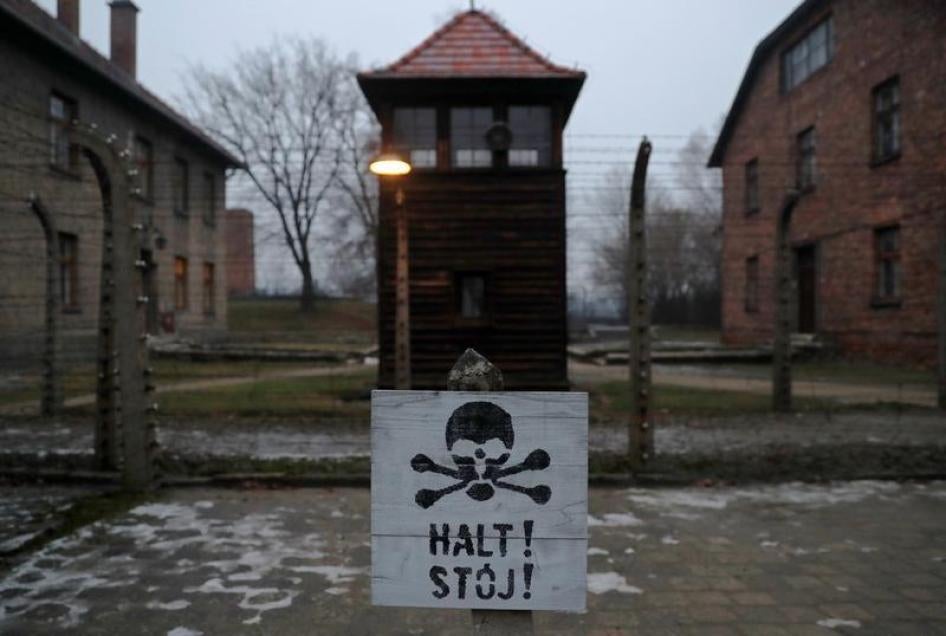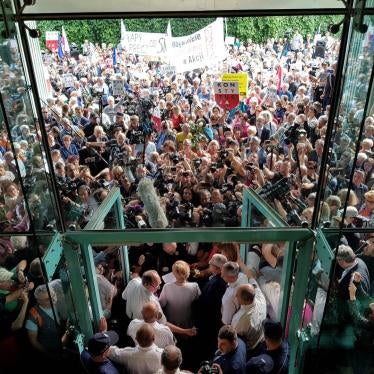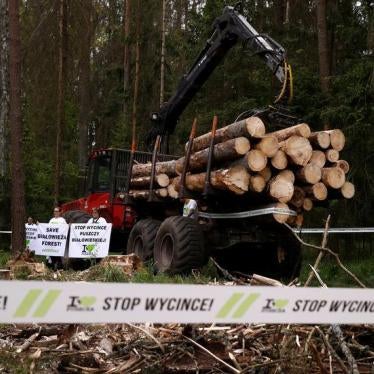A new law in Poland, threatening to jail those who imply the country had a role in the Holocaust, will likely have a wider chilling effect on free expression.
The law, signed by Polish President Andrzej Duda, makes it a crime punishable by up to three years imprisonment to claim that the Republic of Poland or the Polish nation was responsible for, or participated in, Nazi crimes during the Second World War.
Under the law, the Institute of National Remembrance, a state body tasked with establishing an official historical narrative and prosecuting Nazi and Communist-era crimes, will now also be able to claim compensation from anyone “damaging the reputation” of Poland.
Duda has asked the Constitutional Court to review the law to determine if it is compatible with Poland’s constitution. He has also asked for clarification on what exceptions will be made for “artistic and academic” expression included under the law.
Some observers worry that the Polish government’s motivation goes beyond solely trying to suppress discussion about Poland’s role in crimes committed in the Second World War. Critics argue the government may be able to use the civil remedies in the law to curb broader public criticism of its track record.
While the use of the term “Polish death camps” may obscure the responsibility of the Nazis for those camps on Polish soil, the government has failed to convincingly prove that the harsh measures under the law are necessary to prevent the “falsification of Polish history” and of “slandering” Poles.
Laws that criminalize historical discussion – whether denial of, or responsibility for, genocide – have a chilling effect on free expression even if no one is prosecuted under them.
Rather than criminalizing discussion of these awful crimes, the government should seek to create an environment for public debate to thrive, in which fact-based arguments can be presented and exchanged without fear of reprisal.









